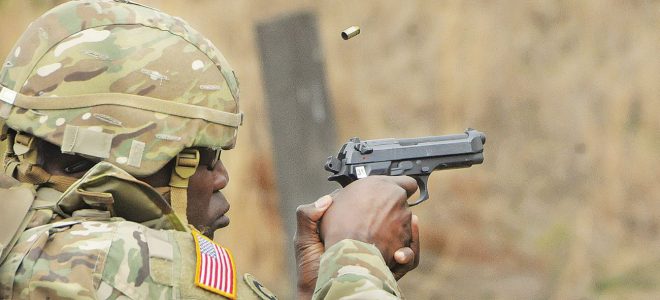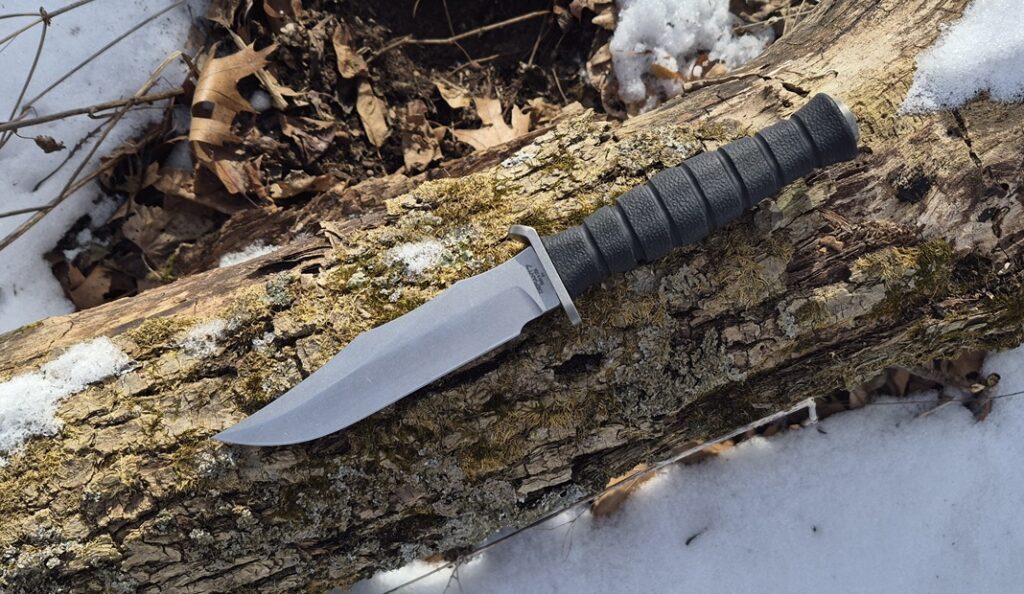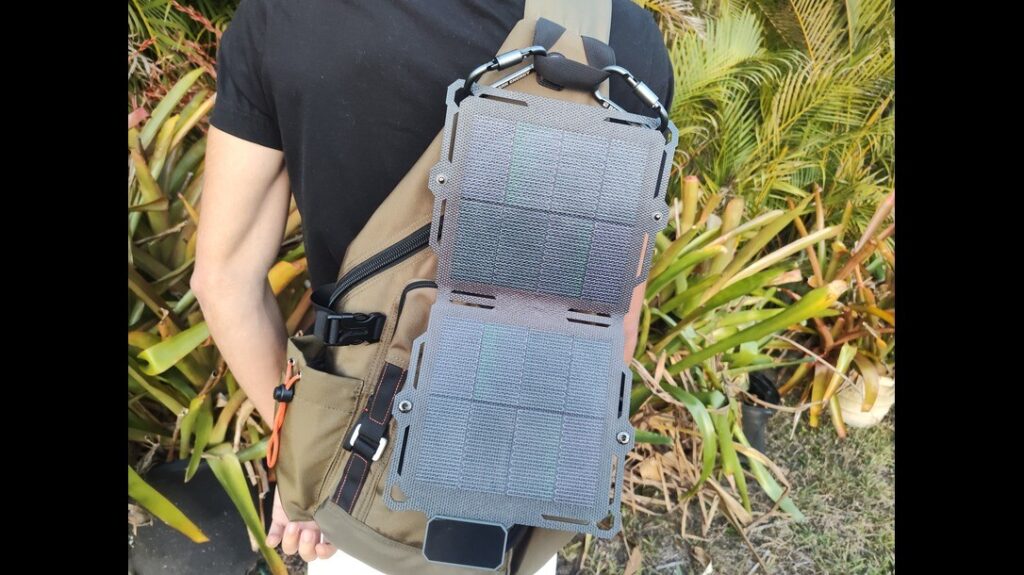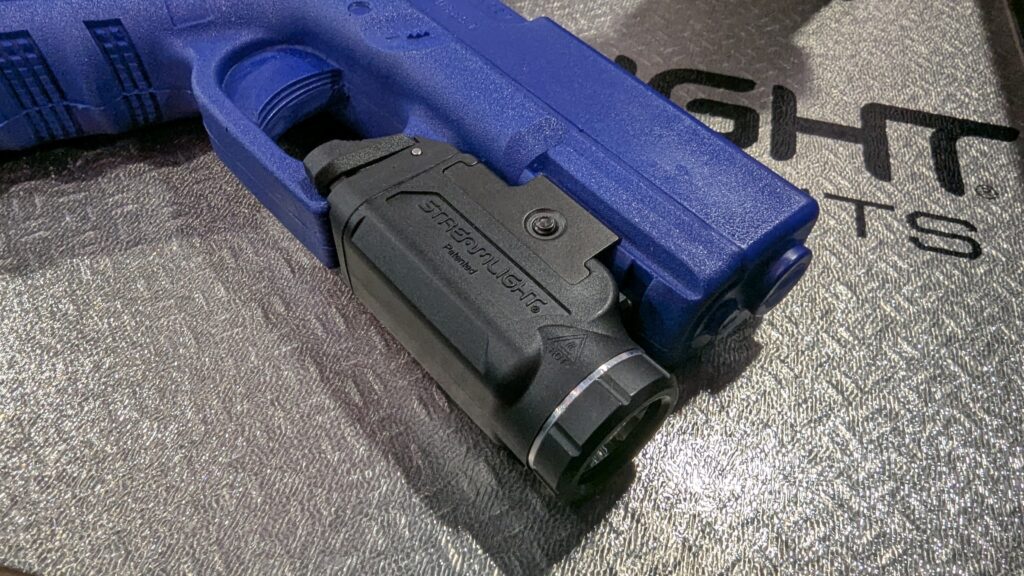The military is a huge, diverse organization that’s built around the conducting war. War is a complicated subject, but somewhere in there sits small arms and their contributions to combat. Although small arms are only a small part of modern warfare, they are extremely overrepresented in the general mindset of the civilian population and often in the minds of service members who think their military experience makes them small arms experts. The military even tells them they are and gives them a badge.
Today I want to contextualize military expertise and how it ties to civilian firearm ownership.
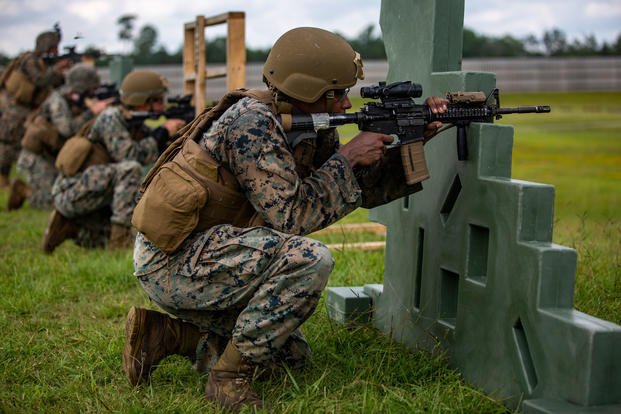
Advertisement — Continue Reading Below
In the firearms world, veterans sit on two sides. Most tend to be pro-gun, but a sizeable chunk is anti-gun. Both sides use their military experience to pose as gun experts. We see a lot of people justify their opinions on gear, guns, and tactics with their military experience. There is an admin Marine on Twitter who tries to convince the world that the AR-15 is way too dangerous for the average gun owner.
So the question is, is the average veteran or servicemember a firearm expert?
Nope, not at all.
Advertisement — Continue Reading Below
Military Expertise – Not All Experiences Are Equal
First, what makes someone a firearm expert? Tough to say because expertise is so spread out in the gun world. Let’s simplify it and just bring it to the world of modern firearms, gear, and tactics that apply to the civilian world. Most people in the military will have some degree of firearm experience.
To someone who has absolutely zero experience, a veteran’s military experience seems like it makes them an automatic expert. I hate to burst your bubble, but there are plenty of people in the military who know nothing about firearms in the grand scheme of things. They were handed a rifle and just followed step-by-step directions.
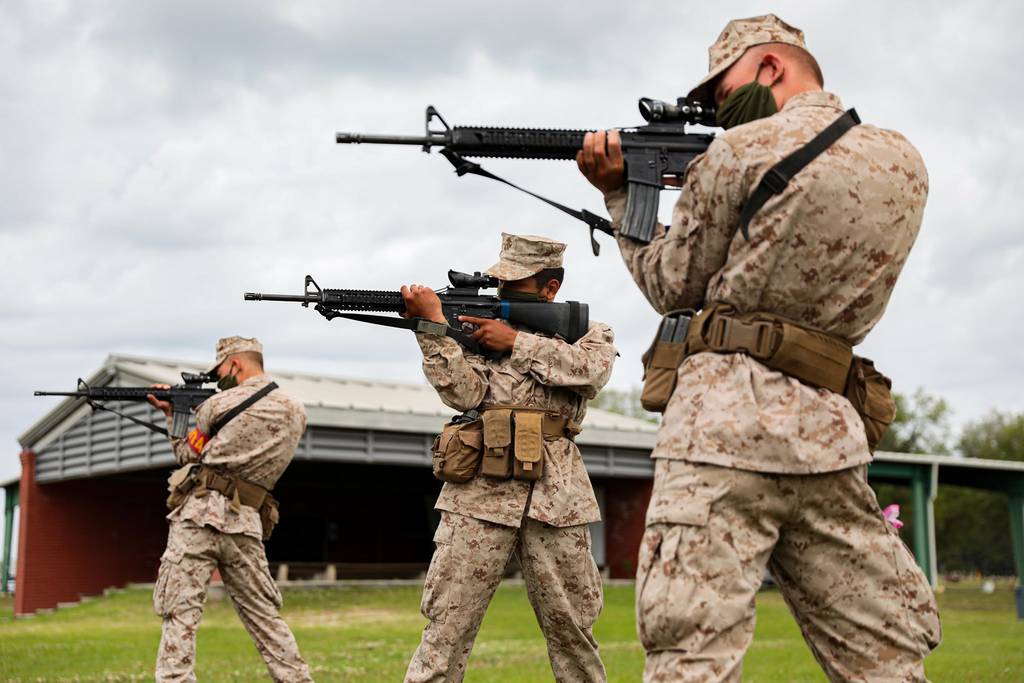
Advertisement — Continue Reading Below
Combat arms are a very small part of our military force. In the Army, only 15% of troops are CA. When we dive in deeper, we see that an even smaller percentage are special operations, somewhere around 3% or so, and that likely includes support troops.
Of all of the military, only about 10% saw combat during the GWOT. Even that phrase can be contentious. Having mortars land 100s of yards away can be considered seeing combat or even being in a single small arms engagement. I’m not trying to downplay the danger involved in either event, but seeing any kind of combat doesn’t make you a small arms, gear, or tactics expert.
If someone has verifiably served in a special operations capacity, that person likely knows his guns and gear well, the ones they used, or at least more than your average person and average servicemember.
Advertisement — Continue Reading Below
What Their Experience Means
Military experience varies greatly. If the service member didn’t serve in combat arms, they likely have extremely limited experience with firearms, tactics, and gear. It’s not their job, so they might qual once a year and might’ve done some training in boot camp. My wife was a medical officer in the Air Force. In her service, she received 0 firearm training and never even touched a firearm. Not her job.
The training combat arms troops receive does focus on individual skills. Marksmanship is important, as is the ability to reload, shoot under pressure, and even clear rooms. Most of their training is focused on working offensively within a squad and team. Some of those skills and tactics translate, but what civilian defensive shooting has a guy with a medium machine gun laying down cover fire?
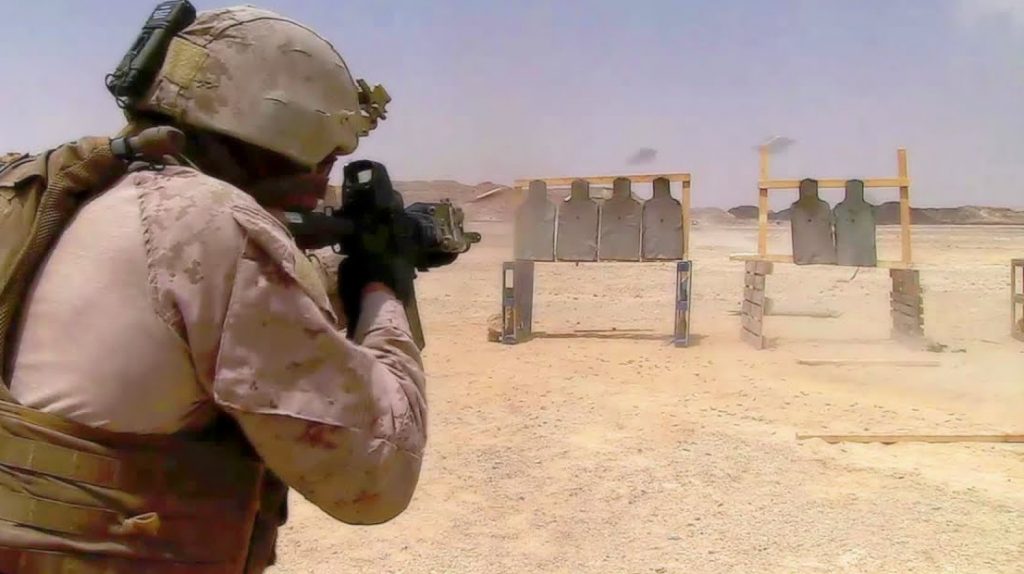
Advertisement — Continue Reading Below
I’m not trying to say our troops lack training, but their training isn’t always, or even mostly, relevant to civilian self-defense. Additionally, most soldiers and Marines are only exposed to what’s issued to them when it comes to gear. When I was in, I couldn’t afford an OWL or modlite. I wasn’t allowed to choose my plate carrier. I even caught hell for adding my own vertical grip to my issued M16A4.
Nothing in my infantry training made me an expert in firearms or defensive shooting. I became an expert in how to rock and roll with an M240. I was a pro at maneuvering on the enemy, and how to call for fire. Some of that M16 training certainly makes me comfy with an AR. It was the training I sought separate from the service that made me ready to deal with self-defense scenarios.
Military Experience and Firearms Training
Believe it or not, plenty of vets like guns. That leads them down the path to learning and shooting well beyond their in-service experience. If you look at most of the tactical trainers on the market, they likely have some military experience. Dudes who join the military tend to be dudes who like shooting guns. It’s not a big surprise to see the jump.
Advertisement — Continue Reading Below
That military experience can be valuable, but if it’s the only experience someone has with guns, then they have a very limited scope of experience and training. It’s certainly not enough to make them qualified to be an expert on concealed carry, gear, or even modern rifle handling. The guy who touched his rifle four times his entire enlistment isn’t qualified to make sweeping gun control proclamations either.

Whenever someone uses their military experience to justify an opinion, it’s wise to contextualize that. If a grunt says I find PMAGs to be more reliable than XYZ mag, then he might know what he’s talking about. If that same grunt proclaims an IWB rig best and uses his military experience to back up his selection, well, he’s likely full of it.
Advertisement — Continue Reading Below
Keep that in mind, and remember not all opinions are equal. Even when they are coming from the mouths of veterans, for not all veteran experience is created equal.
